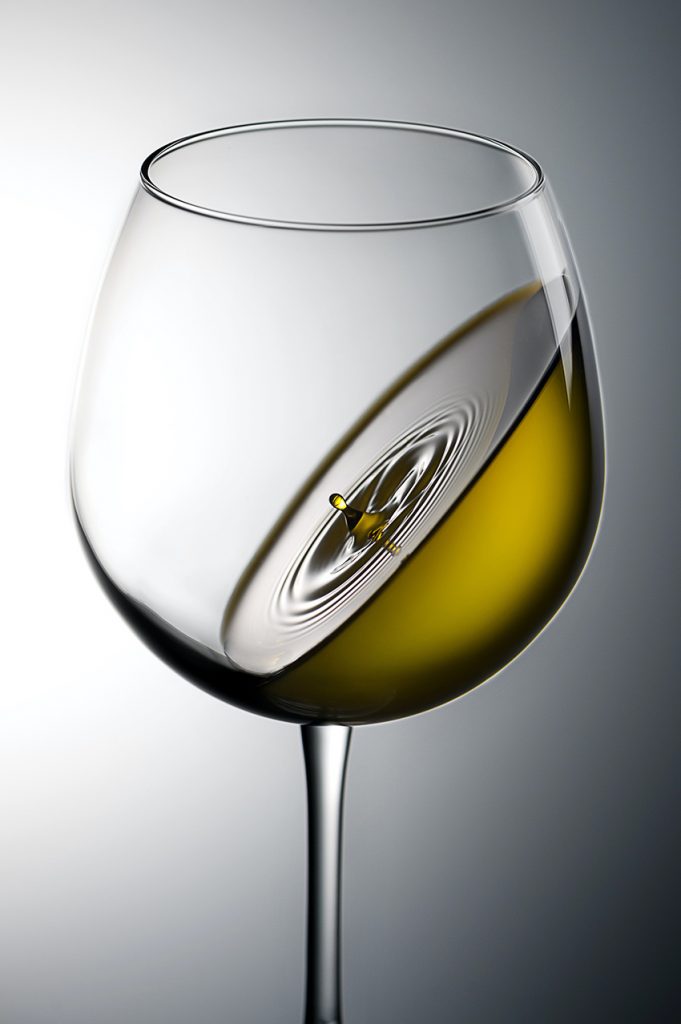A third of UK adults who drink alcohol say wine is their favourite alcoholic drink, with crisp, dry whites such as Pinot Grigio and Sauvignon Blanc being the most enjoyed.
In fact, UK Google search data shows that ‘wine’ is searched for on average a staggering 1.2 million times per month!
Wine Etiquette – What you need to know
Wine collecting is a wonderful pastime, as well as an investment, but many people find the etiquette surrounding wine confusing. A recent study discovered that ¾ of respondents found the rules of wine intimidating, and while 67% believe there are rules to follow, 8 out of 10 people said they did not follow them (Drinks Business). So, if you are curious about pursuing your interest in wine but not sure how to begin, these are the tips for you.
Here, the glassware brand Forever Crystal shares some tips on wine etiquette for less confident wine lovers.
When you are just starting out, it’s helpful to know some basics like how to taste wine, how to store it, and how to choose wine pairings to go with food. Here, we’ll be covering all the information you need to know in order to get started on your journey with wine collecting and tasting.
Wine Etiquette – Tasting wine
Before you begin a wine collection, it’s important to understand how to taste it properly. This will help you find the flavours that you enjoy, allowing you to select wines that suit your taste and find the perfect bottle for any occasion.
So, here are some guidelines for how to taste wine:
- Pour a small glass of the chosen wine, and then give it a swirl. Doing this mixes the wine with the oxygen in the surrounding air, which releases the fragrance and opens the wine up.
- Smell the wine by putting your nose a small way into the glass. It helps to have your mouth open too. Breathe in gently, as this will allow your senses to absorb the smell best.
- Take note of what kind of smells you experience, and try to identify categories:
- Fruity: if you identify fruity smells, you can try to break it down to citrus, orchard, dark and tropical fruits. Then try to see if you can be even more exact.
- Floral: tones such as elderflower, violet, or honeysuckle could be present in the wine. See if you can identify the floral tones.
- Grape variety: many specific wine grapes have recognisable tastes, such as sauvignon blanc with its peppery tang. Over time you’ll be able to tell them apart.
- Spices: you’ll also often be able to find the tastes of cinnamon, cloves, and nutmeg in wines as background tones.
- After smelling, take a small sip of the wine and hold it in your mouth. Swirl it around and breathe it in a little. Most of the flavours you take in during wine tasting actually come from your nose: this is called ‘retronasal olfaction’.
- Then think about what other notes you can find in the wine, such as sweetness, acidity, warmth, and decide how much you enjoyed the wine and what you liked about it.
Wine Etiquette – Pairing wine with food

The choice of which wine you drink at any given time is highly personal, but also to do with what you are eating alongside it. When you become more comfortable in your wine tasting abilities, you will no doubt begin picking wines based on the grape they are made from. In the meantime, follow these tips for wine pairings with food, and always ask the Sommelier — they’ve spent years building up their knowledge, and will enjoy sharing it with you.
So, here is how to pair wine with food — remember that wine and food should always be in balance, so more delicate food will need a lighter wine and vice versa.
- Spicy food: Mild spices such as Mediterranean tagine will go excellently with full-bodied red wines like Chilean carmenére or a Spanish garnacha. However, spicier food will benefit from a sweeter white wine.
- Salty food: Salt emphasises richness and fruit flavours in wine and can make tannins taste more mellow. So, you can choose a tannic wine like Barolo or a fruity acidic one like a sauvignon blanc.
- Acidic food: With the right wine pairing, acidic food can make your wine taste fruitier, but the balance needs to be right. Choose a wine more acidic than the food. The best bets are Champagne and dry reisling.
- Creamy food: There are two ways to go with creamy or buttery dishes. You might pick something rich like a white Rioja, or a brisk acidic white that will cut through the creaminess.
Wine Etiquette – How to serve wine
Once you’ve chosen your wine and thought about what flavours you enjoy, it’s time to think about the correct ways to serve the beverage. Wine is best served slightly cool, as it will smell more acidic if the temperature rises.
You should also pick the correct glass according to the type of wine you are drinking — this maximises the taste and also adds the finishing touch to your table. Red wine tastes best when decanted into a glass or crystal decanter. This is because when you open a bottle of wine it begins to ‘breathe’ after being sealed for a long time, and decanting accelerates this process. Letting your wine sit for 30 – 45 minutes in a decanter before drinking will ensure it tastes better.
“When serving wine, it’s important to choose the right glassware for the occasion — good quality glassware will add a touch of sparkle to the table, and make sure the wine tastes its best. A crystal decanter will allow your red wine to breathe well, while white wines will look excellent in crystal glasses.
“White wines and rosé can be served in the bottle on the table, rather than in a decanter, and they should be served cold. If you buy the wine the same day that you’re going to drink it, storing it in the fridge for several hours, or the freezer for 30 minutes, will get it to the right temperature.”
-David Cooper, Owner of Forever Crystal





